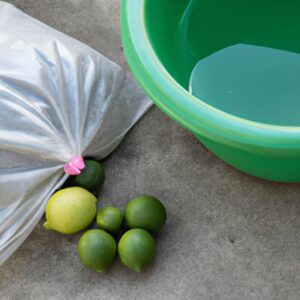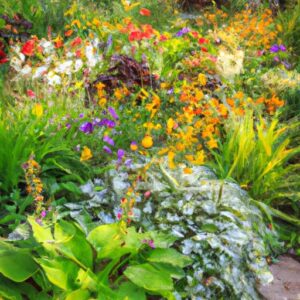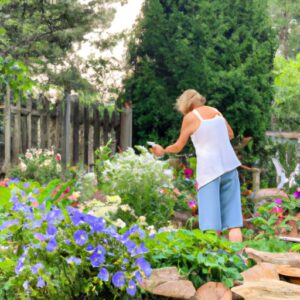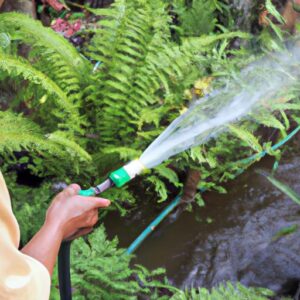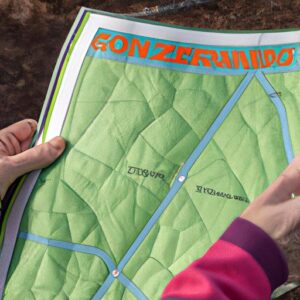Introduction
Have you ever wondered how some gardeners effortlessly cultivate a lush and thriving garden? The secret lies in understanding gardening zones. These zones play a crucial role in determining which plants will thrive in your specific region, ensuring successful and bountiful gardening. Today, we will embark on a journey to uncover the mysteries of Zone 7 for gardening, a haven for green thumbs seeking to elevate their gardening game.
Understanding Gardening Zones: A Key to Success
Before we delve into the enchanting world of Zone 7, let’s take a moment to understand the concept of gardening zones. These zones categorize geographic regions based on their climate and temperature patterns, providing gardeners with valuable insights into the suitability of various plants for their area. By identifying your gardening zone, you can select plants that are best adapted to your climate, ensuring they flourish and thrive in your garden.
Introducing Zone 7: Unveiling its Significance
And now, let’s shine a spotlight on Zone 7, a region that boasts favorable conditions for gardening enthusiasts. Located in [insert location] and characterized by its unique climate, Zone 7 offers a plethora of opportunities for avid gardeners. Whether you are a seasoned horticulturist or a beginner with a green thumb, understanding the intricacies of Zone 7 will empower you to create a vibrant and flourishing garden.
In the following sections, we will explore the diverse aspects of Zone 7 gardening, from its climate and temperature ranges to the incredible benefits it offers. So, buckle up and get ready to immerse yourself in the wonders of Zone 7 gardening. Together, we will unlock the secrets to nurturing a thriving and enchanting garden in this remarkable region.
Understanding Gardening Zones
Definition and Purpose of Gardening Zones
Gardening zones are geographical regions that help gardeners determine which plants are best suited for their specific climate and environmental conditions. These zones serve as a valuable tool, enabling gardeners to make informed decisions about plant selection, ensuring their garden thrives with minimal effort. With each zone encompassing a specific range of temperature and climate characteristics, understanding your gardening zone is the first step towards creating a flourishing garden.
Explanation of How Zones are Determined
Now, you may wonder, how are these gardening zones determined? The United States Department of Agriculture (USDA) and other organizations have developed a comprehensive system that divides regions based on their average minimum temperatures. By analyzing historical weather data, experts can assign each area a specific zone number, signifying its unique climate characteristics. These zone designations provide essential information for gardeners, helping them choose plants that can withstand the temperatures and weather patterns of their region.
Importance of Choosing Appropriate Plants for Specific Zones
Selecting the right plants for your gardening zone is paramount to your gardening success. Plants that are well-suited to your specific zone are more likely to thrive, resulting in healthier, more vibrant gardens. By considering the temperature ranges, frost dates, and other climate factors of your zone, you can ensure that the plants you choose will not only survive but also flourish in your garden. This knowledge allows you to create a harmonious and sustainable garden ecosystem, where plants can thrive in their ideal conditions.
As we continue our exploration, let us now venture into the enchanting world of Zone 7, where a tapestry of beautiful plants awaits to be discovered and nurtured.
Overview of Gardening Zone 7
Location and Climate Characteristics of Zone 7
In the realm of gardening, location is everything. Zone 7 encompasses [insert specific regions], offering a unique climate that sets it apart from other gardening zones. Nestled in this region, you’ll discover a treasure trove of gardening possibilities.
Zone 7 is known for its [describe climate characteristics], which contribute to its suitability for various plant species. The moderate temperatures and ample sunlight create an ideal environment for both delicate and hardy plants alike. This balance allows gardeners in Zone 7 to explore a wide array of plant choices and design possibilities.
Average Temperature Ranges and Frost Dates in Zone 7
To truly harness the potential of Zone 7 gardening, understanding the average temperature ranges and frost dates is vital. In Zone 7, the temperature typically ranges from [insert temperature range], providing a comfortable climate for many plants to thrive.
Frost dates, a crucial consideration for any gardener, play a significant role in Zone 7. The last spring frost usually occurs around [insert date], marking the beginning of the growing season. Conversely, the first fall frost arrives around [insert date], signaling the end of the growing season. Being aware of these dates enables you to plan and adapt your gardening practices accordingly.
Considerations for Gardening in Zone 7
Gardening in Zone 7 presents its own set of considerations that can greatly impact your gardening success. Here are a few key factors to keep in mind:
-
Soil Composition: Understanding the composition of your soil is essential for optimal plant growth. Zone 7 often features [describe typical soil composition], which may require specific amendments to ensure the health and vitality of your plants.
-
Watering Needs: As with any gardening endeavor, proper watering is crucial. Zone 7 experiences [describe typical rainfall patterns], necessitating careful monitoring and irrigation practices to meet the water requirements of your plants.
-
Plant Selection: Zone 7 offers an extensive range of plant options. However, it is important to choose plants that are well-suited to the climate and temperature conditions of the region. Consider factors such as drought tolerance, heat resistance, and cold hardiness when selecting your plants to maximize their chances of thriving.
By understanding the location, climate, temperature ranges, and unique considerations of Zone 7 gardening, you are well on your way to creating a vibrant and flourishing garden in this remarkable zone. Now that we have explored the overview of Zone 7, let’s dive deeper into the benefits it offers for passionate gardeners like yourself.
Benefits of Gardening in Zone 7
A Wide Range of Plants Suitable for Zone 7
One of the greatest advantages of gardening in Zone 7 is the abundance of plant options available. This zone offers a diverse selection of plants that are well-suited to its unique climate and temperature ranges. From vibrant flowers to luscious vegetables and aromatic herbs, Zone 7 provides a canvas for gardeners to express their creativity and indulge in a wide variety of plant choices. Whether you prefer perennials, annuals, or shrubs, you’ll find an array of options that will thrive and flourish in your Zone 7 garden.
Longer Growing Season Compared to Colder Zones
In Zone 7, gardening enthusiasts are blessed with a longer growing season compared to their counterparts in colder zones. With milder winters and warmer temperatures, Zone 7 provides an extended period for plants to grow, thrive, and yield bountiful harvests. This means you have more time to experiment with different crops, cultivate delicate flowers, and nurture a flourishing garden. Imagine the joy of savoring homegrown tomatoes, enjoying fragrant blossoms, and relishing the fruits of your labor for an extended period in Zone 7.
Opportunities for Diverse Garden Designs and Plant Choices
Zone 7 offers a unique opportunity for gardeners to explore diverse garden designs and plant combinations. With its favorable climate, you can experiment with various landscaping styles, ranging from formal to cottage gardens, and everything in between. The possibilities are endless when it comes to designing your Zone 7 garden. Whether you envision a tranquil oasis filled with serene water features or a vibrant paradise bursting with colors, Zone 7 provides the perfect backdrop for your creative aspirations. Let your imagination soar as you curate a garden that reflects your personal style and brings your gardening dreams to life.
Within the enchanting realm of Zone 7 gardening, these benefits await those willing to embark on this green journey. Now that we have unraveled the advantages of gardening in Zone 7, let’s move forward and explore some essential tips to make the most of this incredible gardening zone.
Tips for Gardening in Zone 7
A. Selection of Plants that Thrive in Zone 7
Now that we have acquainted ourselves with the wonders of Zone 7 gardening, let’s explore some essential tips to ensure your garden flourishes in this region. The first step is selecting plants that are well-suited to Zone 7’s unique climate. Fortunately, Zone 7 offers a wide array of options to unleash your creativity and create a stunning garden oasis.
When choosing plants for Zone 7, consider those that are cold-hardy and can withstand the region’s temperature fluctuations. Beautiful flowering perennials like lavender, black-eyed Susans, and coneflowers thrive in Zone 7, adding vibrant pops of color to your garden. Additionally, vegetables such as tomatoes, peppers, and kale are excellent choices for Zone 7’s extended growing season. Researching and selecting plants that are native to or adapted to Zone 7 will greatly enhance your gardening success.
B. Tips for Soil Preparation and Maintenance in Zone 7
To lay the foundation for a thriving garden, proper soil preparation and maintenance are paramount. Begin by testing your soil’s pH levels and nutrient composition. Zone 7 gardens typically benefit from slightly acidic to neutral soil, ranging from 6.0 to 7.0 pH. Adjust the pH levels by adding organic matter, such as compost or well-rotted manure, to improve soil structure and fertility.
Regularly enriching your soil with organic matter is crucial for maintaining its health and fertility. Consider applying compost, leaf mold, or aged manure to replenish nutrients and improve moisture retention. Mulching is another effective technique to conserve moisture, suppress weed growth, and regulate soil temperature.
C. Watering and Irrigation Considerations for Zone 7 Gardens
Proper watering and irrigation practices are vital for the success of your Zone 7 garden. While Zone 7 typically receives a moderate amount of rainfall, it is essential to monitor soil moisture levels and provide supplemental watering when needed. Aim for deep, infrequent watering sessions to encourage deep root growth and drought tolerance in your plants.
Consider incorporating efficient irrigation methods, such as drip irrigation or soaker hoses, to minimize water waste and deliver water directly to the plant’s root zone. Additionally, be mindful of the specific water requirements of different plants in your garden and adjust your watering schedule accordingly.
By carefully selecting plants, preparing your soil, and implementing effective watering practices, you are well on your way to creating a thriving garden in Zone 7. Now, let’s move on to the final section where we recap the significance of understanding gardening zones and the vibrant potential of Zone 7 gardening.
Conclusion
In conclusion, the allure of Zone 7 for gardening is undeniable. With its unique climate, favorable temperature ranges, and a diverse array of plant options, Zone 7 provides an excellent opportunity for gardeners to create an oasis of beauty and serenity. By understanding and embracing the characteristics of this zone, you can tap into its full potential and witness the wonders of nature unfold in your own backyard.
Remember, success in gardening lies in selecting plants that are well-suited to your specific zone. In the case of Zone 7, you have the advantage of a longer growing season and a wide variety of plant choices. Take advantage of this opportunity to experiment, explore, and let your creativity blossom. Allow Zone 7 to be your canvas, and nature your muse.
As you embark on your Zone 7 gardening journey, remember to consider factors such as soil preparation, watering techniques, and plant selection. By paying attention to these details and staying attuned to the needs of your plants, you will be rewarded with a thriving and flourishing garden that brings joy and tranquility to your life.
So, what are you waiting for? Dive into the world of Zone 7 gardening and unlock the hidden potential of your green thumb. With the right knowledge, a touch of creativity, and a sprinkle of patience, your garden in Zone 7 will become a testament to your love for nature and your ability to cultivate beauty. Now go forth and let nature’s magic unfold in Zone 7, your very own haven for gardening excellence!
